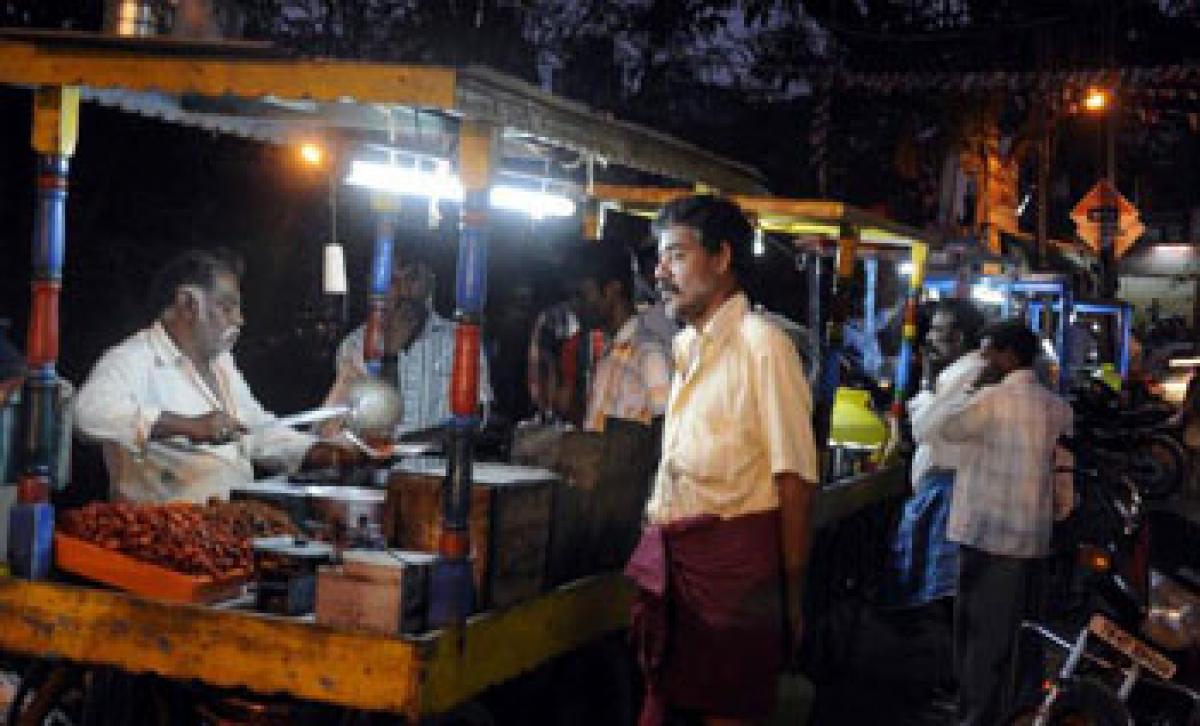FSSAI Shuts City Office From Today
Less than a year after forcing Nestle India to recall samples of Maggi, and running-in with Patanjali Ayurved for manufacturing and selling atta noodles without requisite licenses, the Food Safety and Standards Authority of India is quietly moving towards a `deregulation' and `self-compliance' regime.
As a first step in this direction, the country's food regulator has ordered the winding up of its sub-regional offices in Lucknow and Chandigarh, with effect from March 31.
From April 11, the Authority will carry out its regulatory work; licensing, enforcement and monitoring of the Food Safety and Standards Act, 2006, remotely , from the FSSAI headquarters in New Delhi, and four regional offic es in Kolkata, Chennai, Mumbai, and Guwahati. The closure orders were communicated to the Chandigarh and Lucknow offices through an office order of February 24, signed by director establishment, FSSAI, Rakesh Chandra Sharma. However, the order was not avilable on the FSSAI website, until the time of going to press.
Speaking to TOI, FSSAI chief executive officer, Pawan Kumar Agarwal, said, “The decision to close down sub-regional offices in Lucknow and Chandigarh was a carefully considered one.These offices had limited staff and were not adding value. Our attempt is to downsize and rationalise our resources. We dont wan't food safety officials to be a nuisance to food businesses, rather we want citizens to have confidence in them.“
Saying inspection was not the way forward in the food industry , and the FSSAI was keen to encourage self-regulation and declaration, Agarwal added, “We are using a pragmatic approach, and moving towards a regime of self-compliance. We plan to use technology meaningfully to reach out to businesses and encourage them to selftest and upload results online.Penalties can be issued online for non-compliance. Consumers are also encouraged to be more aware and act as a food safety inspector.“ While deregulation ap pears to be the key word, the FSSAI is mandated, at present, under the Food Safety and Standards Act, 2006, to lay down “science-based standards for articles of food and to regulate their manufacture, storage, distribution, sale and import to ensure availability of safe and wholesome food for human consumption.“ The Act was enforced across India from 2011, after the Food Safety and Standards Rules and Regulations, respectively, were notified by the Central government. It governs about 35 lakh food businesses across India of which about 27,000 licenses are issued directly by FSSAI. In comparison to the size of food business, however, the number of food safety officers under FSSAI is woefully low; less than 10%.
Citing a severe manpower crunch and the Authority's inability, as a result, to fully control the food industry , Agarwal said enforcement will now shift into the hands of the concerned state governments, while the regional office in New Delhi will monitor overall regulation of food in UP and other states in India FSSAI could not, however provide TOI a copy of an office order, or gazette notification announcing the change in procedure, authorising state governments to take over en orcement, inspections and monitoring of food business es.
Agarwal, the chief execu ive, and also the Food Com missioner of India, quoted the FSS Act, 2006 as having pre scribed `Minimum Govern ment but Maximum Govern ance,' which is the trigger be hind the Authority's decision o “downsize and rationalise“ resources. TOI could not, how ever, find a reference to any such statement in the Act.
The Lucknow office of FSSAI, in its capacity as food regulator, has issued 2672 food icenses from its inception in September 2008, until March 27, 2016. In addition to issuing licenses, it has also served show cause and improvement notices on food manufacturers, conducted over 250 inspections of food production facilities, and initiated penal action against a prominent food manufacturing business.
According to RTI information sought by TOI from the FSSAI Lucknow office, among key companies that were issued improvement or show cause notices for sub-standard or unsafe food products include Nestle for its Maggi noodles, and Mother Dairy for its `Fruit Added Lassi', which RTI information shows was being sold across India without a product license. The offices also suspended the license of JVL Agro, manufacturers of `Jhoola Vanaspati', among other oils produced by the company , and found during surveillance sampling that all brands of packaged drinking water sold in UP were sub-standard and unsafe for consumption. Among other food majors pulled up by FSSAI include Hindustan Unilever for producing substandard bread under the label “Modern“, and for illegal slaughter against Abu Dhabibased Lulu Group's Amroon Foods Pvt Ltd at its Barabanki facility.
Speaking to TOI, sources in New Delhi said the Centre and FSSAI, as food regulator, were for some time faced with adilemma; whether to keep up its stringent regulatory check in public interest, or to resolve regulatory issues in favour of food manufacturers like Nestle and other prominent names in the food industry . An FSSAI resource person, on condition of anonymity , told TOI: “Considering that FSSAI was established in public interest, and with an aim to function as a regulatory , enforcement and monitoring agency controlling the entire food industry in India, it only makes sense to expand the Authority's network, rather than to close down its offices.“




























